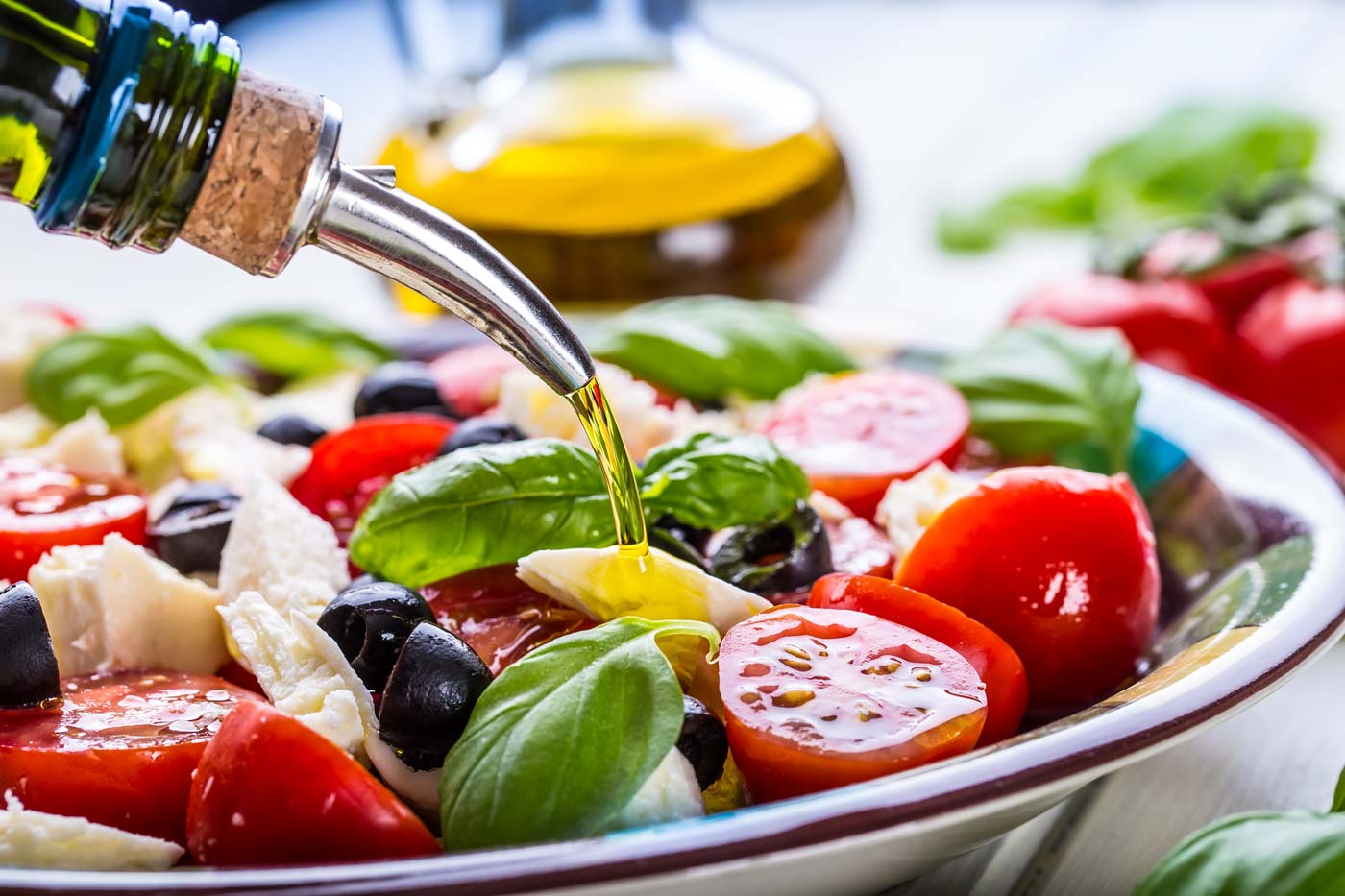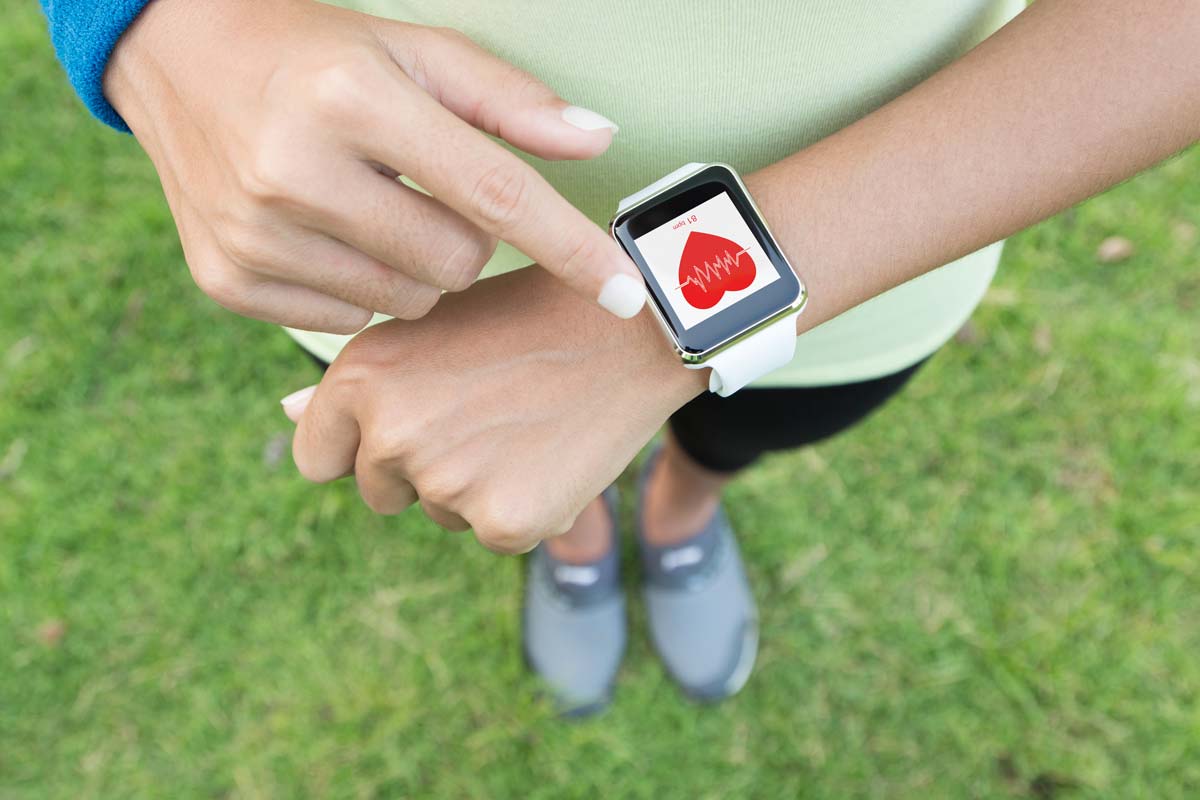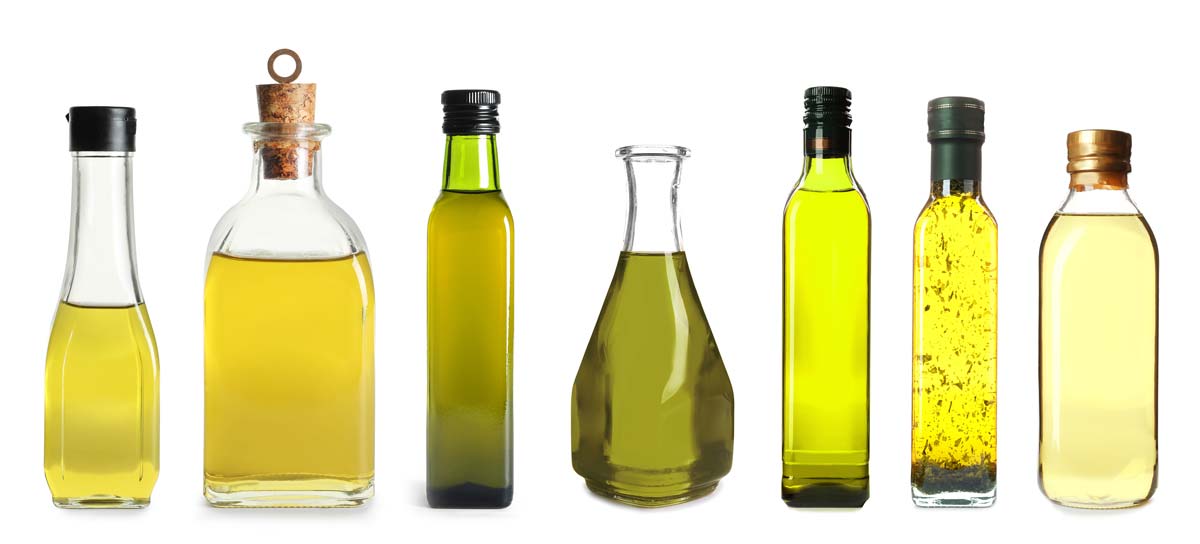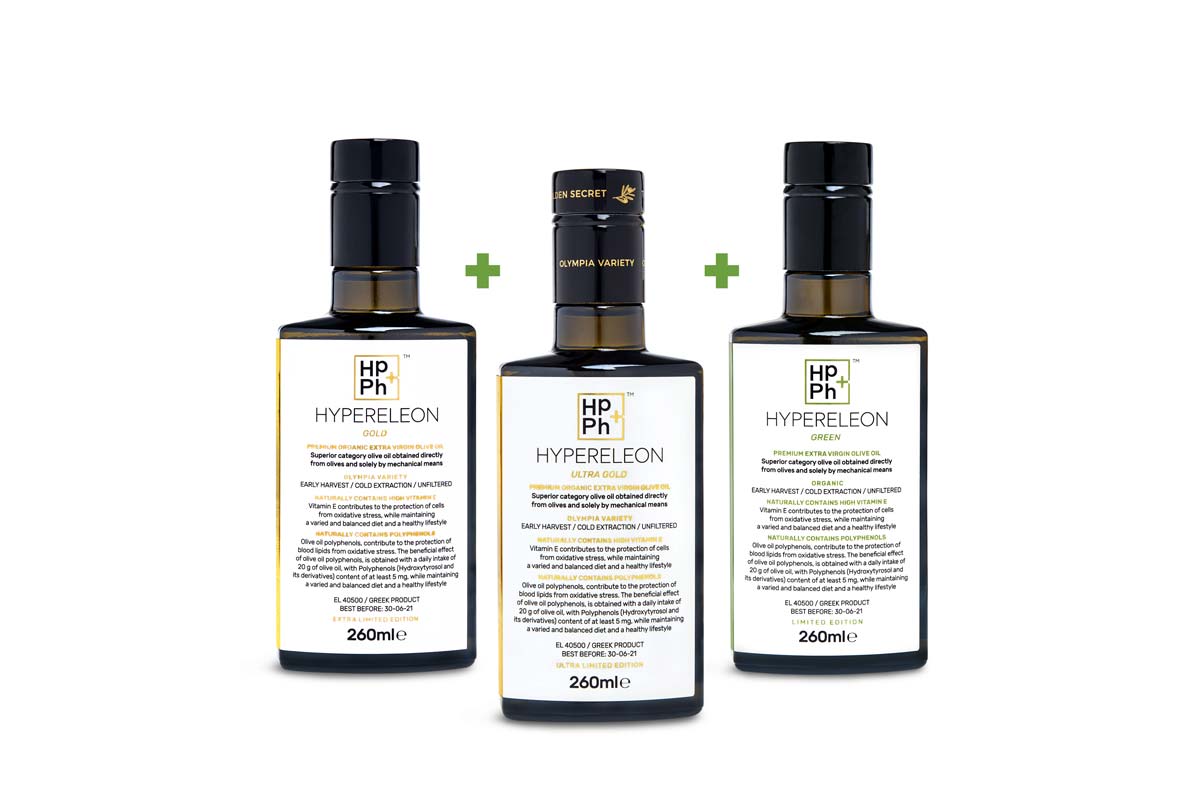The internet can be a confusing place, filled with conflicting information on what to eat, what not to eat, what "must" be consumed daily, and what should be avoided like the plague.
One of the hottest, and oiliest, topics of the 21st century is that of olive oil – and the internet has a lot of questions.

The bad news is that the answers aren’t black-and-white, because many olive oils aren’t that great for your health.
The GOOD news, however, is that not all olive oils are created equally… Now – before we talk about the good news, let’s get the nitty-gritty of the bad out of the way.
Olive oil has long been regarded as one of the healthiest fats on the planet; the “smoking gun” in the internationally hailed Mediterranean diet.
Much research suggests that this diet offers a long list of health benefits, but curious research performed by a University of Maryland heart specialist, Robert Vogel, revealed that olive oil could damage your heart and arteries just as much as a big slice of cake or the quintessential Big Mac.
In a test performed on a group of 10 volunteers, Vogel found that the subjects’ blood vessels constricted, sending blood flow plummeting by 34%. This is in comparison to an 11% drop when consuming canola oil.
So, it’s clear to see that some olive oil is indeed less-than-ideal for consumption.
However – it’s important to look at the type of olive oil we’re consuming. But – what is the best olive oil to buy? We’ll be talking about that next.

Yes – CHEAP olive oil can be bad for you if you buy poor-quality olive oil that is of a low grade.
Unfortunately, oil that is heavily processed and/or even refined is dangerous when it reaches smoking point. This is the temperature that causes the oil to start breaking down, which turns an otherwise normal oil into carcinogenic smoke.
When olive oil is heavily refined, it is stripped of the vitamins and health-protective ingredients that make it such a shining star in the world of healthy foods.
Extra Virgin Olive Oil (EVOO), on the other hand, has a relatively lower smoking point when compared to other types of oil, making it more than ideal for cooking and baking at low to medium-heat.
However, oxidative stability, not smoke point, is the best predictor of how an oil behaves during cooking.
According to studies, Extra Virgin Olive Oil displayed the greatest oxidative stability, producing lower levels of polar compounds, trans fats, and other by-products when compared to other oils that had higher smoke points. This was likely due to its high levels of antioxidants as well as monounsaturated fats.
In fact, according to a 2015 Food Chemistry study, when researchers deep fried and sautéed potato, tomato, eggplant, and pumpkin, the antioxidant levels of these foods actually increased, showing that olive oil continues to deliver nutritional benefits even when cooked at a high heat.
Reference: USnews
EVOO is also bursting with monosaturated fats and polyunsaturated fatty acids, which numerous studies have praised for improving heart heath.

Saturated and trans fats are the ones you want to avoid.
According to MedicalNewsToday.com, consuming unhealthful fats like these has been linked to a long list of serious health conditions, including stroke, obesity, and heart disease.
And while poor-quality fats like these are swimming in cheap store-bought olive oils, and even some falsely labeled “Extra Virgin” olive oils (we’ll talk about that later…), we can lower our risk of developing conditions like heart disease by replacing saturated and trans fats with MUFAs (monosaturated fatty acids).
Fats like these are particularly high in something called high-density lipoprotein, or HDL for short. You might know this as “good” cholesterol which, in contrast with its “bad” counterpart, can actually reduce low-density lipoproteins in the bloodstream.
Extra-Virgin Olive Oil is produced by grinding the highest quality olives into a paste, which is then mechanically cold-pressed and processed without the need for high heat or dangerous chemical application.
THIS is what prevents a loss of nutrients and priceless beneficial ingredients. Ideally, there should be a total absence of heating or the need to add water.
THIS is what protects and preserves the one thing we should all be looking for when buying EVOO.
Polyphenols – which we’ll be talking about in a moment.

Polyphenols are specific micronutrients found in certain types of plant-based food sources. The great thing about polyphenols is that they’re bursting with antioxidants and that can improve our well-being from the outside in.
Seeing as polyphenols occur naturally in the plant-kingdom, they’re easy to include in our diet through things like fruits, vegetables, teas, and of course (perhaps easiest of all) adding quality EVOO to your diet that’s high in phenolic content. In fact, specific polyphenols with superb and unique health-protective action, like Oleocanthal, Oleacein, and Oleuropein can be included to your diet, exclusively by consuming high quality EVOO.
Polyphenols has been linked to: improved digestion and heart health, couple with stronger defense against the likes of Type 2 Diabetes, atherosclerosis, heart disease, allergies, cholesterol and, possibly, certain types of cancer.
Now; the problem comes in when the naturally-occurring polyphenols in EVOOs are destroyed during unnatural chemical processes and high-heat processing methods.
Small lab-based experiments suggest that when polyphenols are preserved and present, they can have interesting and positive effects on the bloodstream. While there is yet to be a definitive study comparing the differences between refined and Extra Virgin Olive Oil, this research is certainly not to be ignored.
Sure you can – but that’s not to say you’ll get their full benefit.
Healthline.com mentions that while supplements can indeed provide users with a consistent polyphenol dosage, there are a handful of drawbacks, like the fact that supplements fail to showcase the same consistent benefits offered by food that is naturally rich in polyphenols.
What’s more, polyphenol supplements lack any of the other plant-based compounds found in whole, unprocessed plant foods like Extra Virgin Olive Oil.
What kind of beneficial plant compounds are we talking about?
One of the most notable is Oleocanthal, which is exclusive found in Extra Virgin Olive Oil.
A Hunter College research team discovered that certain types of EVOO can actually kill cancer cells in humans, with no impact on normal cells. The study published in PLOS ONE demonstrated that Oleocanthal – a type of polyphenol and a specific component in certain olive oils – isn’t found in all olive oils, and the ones that do contain it are powerful enough to obliterate cancer cells in patients according to the results of the study.
The reason why not all EVOOs are high in Oleocanthal comes down to things like harvest time, processing methods, and origin. The researchers at Hunter College scoured various different types of olive oil to determine how much Oleocanthal was available in each, and the results were startlingly varied. Some oils had almost no Oleocanthal at all, while others held enough to annihilate in vitro cancer cells entirely.
A similar study in mice engineered to develop pancreatic tumors showed that, when injected with Oleocanthal, the mice’s tumor burden was reduced and their life expectancy rose. While we still have a long way to go in terms of research, this is a huge step in the cancer conversation, with potential to harness and develop the data we already have to further strength the global fight against the dreaded disease.
Yes, Extra Virgin Olive Oil, bursting with polyphenols and Oleocanthal, has clearly been shown to be much healthier than its regular counterpart. But are all “Extra Virgin” bottles what they claim to be? Unfortunately, the answer is shocking.
The National Consumers League performed tests on 11 different bottles of olive oil in 2015, and what they discovered what astonishing to say the least. A staggering 6 of the 11 bottles failed to meet the high standards that should classify them as extra virgin.
Don’t worry, though – there are just as many honest brands as dishonest ones out there, and if you’re searching for the prior, you need Hypereleon.
What sets Hypereleon’s medicinal-grade olive oil apart from other EVOOs is its remarkably high phenolic content. EVOO that is rich in polyphenols provides many more of the health benefits that other olive oils are inaccurately hailed for. That’s because, in high-phenolic olive oil, 99% of the oil’s benefits come from the polyphenols.
EVOOs like Hypereleon bear international certifications of quality and high manufacturing facility standards. They also carry health claim labels that promise the EVOO’s ability to promote heart health and fill the body with health-protective antioxidants – all of which are backed by solid research and scientific studies.
The higher quality EVOOs out there differ greatly in taste, color, and of course, health-protective properties. The highest quality EVOOs on the market are enjoyed for having a far more pleasant taste that regular olive oils that have been subjected to more processing. This is definitely an added bonus for medicinal-grade olive oil lovers worldwide.
Hypereleon’s medicinal-grade olive oil offers an impossible-to-miss difference in quality that you can taste. Most describe it as a little fruity yet slightly peppery and bitter – similar to taking a bite right out of a fresh olive.
On the other hand, lower quality olive oils that have been overprocessed, cleaned with chemicals, and heated beyond repair, have a more metallic, musty taste. Many people describe the taste as, well, almost flavorless – without much taste to describe at all.
If you want to buy an olive oil that’s good for your well-being, avoid words like “light” and “pure” at all costs.
“Pure” oils are blends of EVOO and processed oil. You can easily get a glimpse of what’s inside by reading the label before you buy. The same goes for “Light” EVOOs. These are often blends that have been heavily processed and exposed to heat and chemicals.
We must reiterate that not all olive oil is bad. Many sources on the internet are releasing misleading information arguing their side of the case that all olive oil causes certain adverse health effects, but we’ve also done plenty of research of our own (as have some of the world’s leading scientists and researchers, as you have now seen).
As you can see, olive oil CAN be bad for you if you waste your money on poor-quality LOW grade olive oil. Again, even oil that claims to be Extra Virgin might not necessarily meet all of the requirements it says it does.
Did you know that the way you store your high-phenolic Extra Virgin Olive Oil can have a direct impact on its quality and the preservation of its naturally-occurring vitamins and health-protective antioxidants?
The best place to store any olive oil is in a cool, dark, and dry place – somewhere that isn’t ever exposed to radiant heat from either the sun or your home appliances. Proper storage can keep your high-phenolic olive oil fresher for longer, while preserving the polyphenols and other star ingredients.
We’ll keep this one simple: Olive oil has far more “good” fat, like polyunsaturated and monosaturated fat, than even the most virgin of coconut oil, according to everydayhealth.com.
Olive oil is also lower in saturated fat than its coco nutty counterpart, which has been found to increase the amount of bad cholesterol, or LDL, while increasing one’s risk of developing coronary artery disease or atherosclerotic plaques (according to the same source).

An EVOO like Hypereleon is able to confidently prove its high phenolic content and scientifically-proven well-being-boosting composition. Hypereleon is an award-winning high phenolic EVOO consumed by 1000s of healthy families around the world, which is produced through an advanced and meticulous cold-pressing process.
Hypereleon’s range of unfiltered and chemical-free EVOO has not been subjected to heating, meaning that all natural vitamins, polyphenols, and other naturally-occurring antioxidants are swimming around in every bottle of high phenolic olive oil undisturbed. Just as nature intended.
To learn more about the one EVOO taking the oil world by storm, click here to view Hypereleon’s award-winning range of high-phenolic Extra Virgin Olive Oil today.